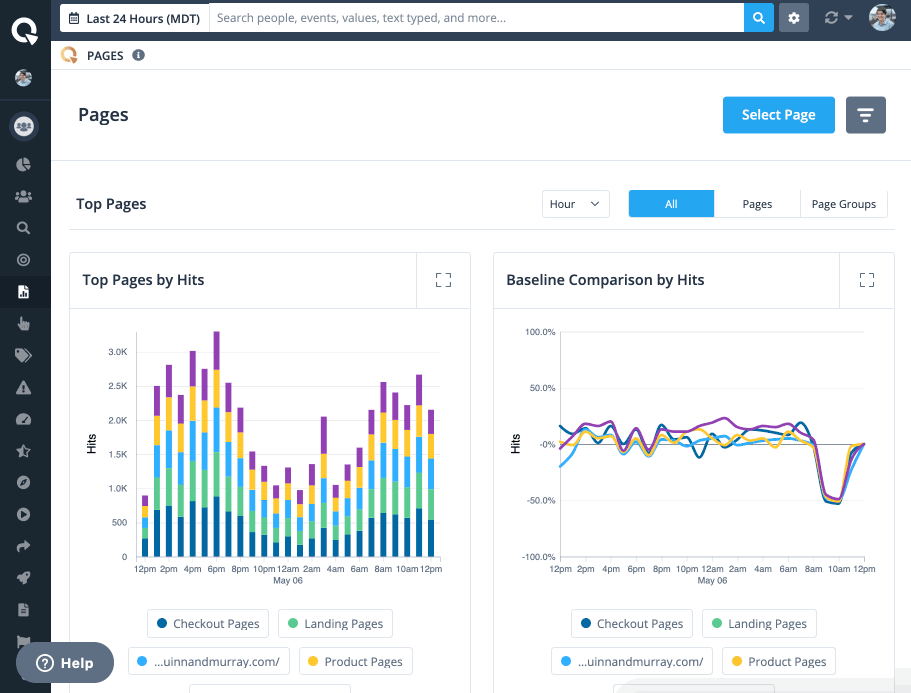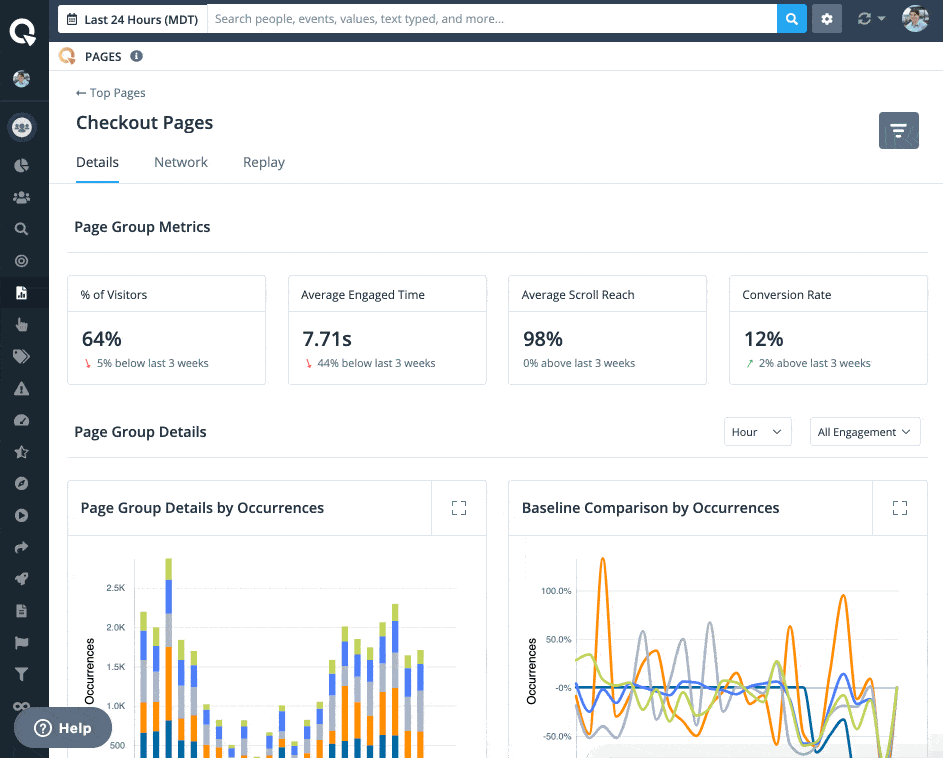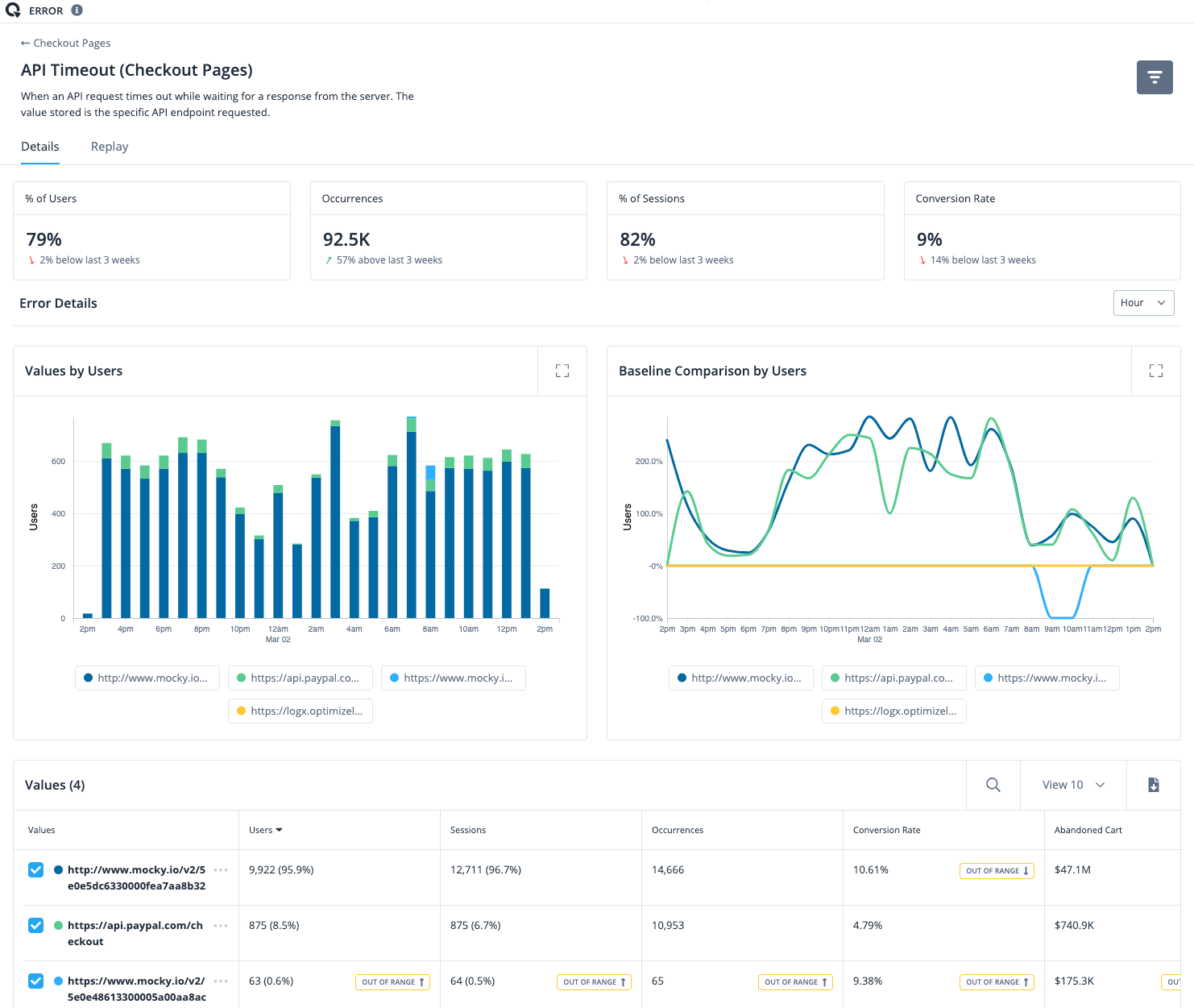Product
Why we built this: Pages.
By Trevor Pyle
May 11, 2020

3 min read
Why did we build Pages?
If you have logged into Quantum Metric once you are probably familiar with two words: session replay. If you have logged into Quantum Metric more than once, you have probably realized that a bucket of session replays sitting in a UI doesn’t actually help you do your job better.
That’s why Quantum Metric utilizes aggregated insights to surface user behavior, so you only need to watch the sessions that you know are important. However, there were some nuances to the session based approach. Dashboards and analytics were analyzed at the session-level. This type of data could help you answer what happened in a user’s session. But what if you are a product manager who owns a group of pages (product detail pages for example)?
How do you determine user behavior that happened only on the pages you care about? This is where Pages by Quantum Metric comes in.
What can you do with Pages?
Analyze page-level engagement. Easily identify page-level conversions, isolate drivers/detractors, and benchmark user behaviors. Pages allows you to view user engagement in a context that matters to you, by giving you visibility into how a user interacted on a particular page or grouping of pages. Isolate events, errors, feature engagement, and even replays to a single page experience.

Quickly identify anomalous behavior. Visualize ‘pops and drops’ in order to trend engagement or measure micro-conversions with your key page groups. Pages uses granular historical data to identify and trend anomalous behavior. As a product manager, this helps you quantify the success of your product iterations by understanding what activities lead to a good (or bad) product experience.

Understand the errors & events that make or break your experience. Use error and event detail pages to analyze segments at a granular level. Understand errors and events in the context of your KPIs. If an error is occurring but it’s not impacting user experience or conversion, it probably shouldn’t be prioritized. However, if a new feature is driving valuable product experiences, that value should be quantified and shared with the rest of the team.

What’s next?
To get a quick overview of Pages, check out this short video highlighting a few uses cases.
If you are just learning about Quantum Metric, request a demo to explore some custom use cases for your team.







share
Share